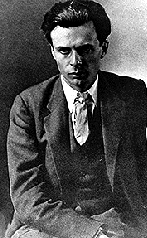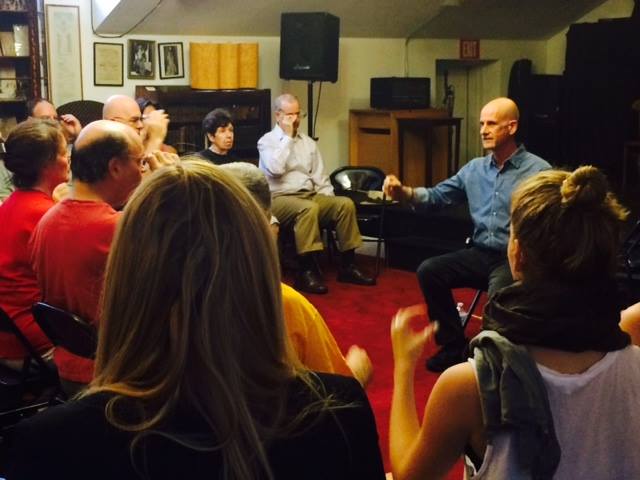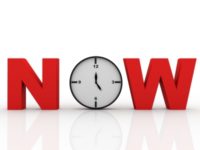 Aldous Huxley (1894-1963) was an English writer, best known for his novel Brave New World. Aldous Huxley was a student of the Alexander Technique.
Aldous Huxley (1894-1963) was an English writer, best known for his novel Brave New World. Aldous Huxley was a student of the Alexander Technique.
The Alexander Technique has a unique way of addressing body/mind unity. Although this forward was written significantly before detailed brain imagery and the advances of neuroscience and embodied neuroscience, much of what Aldous Huxley writes here, and what F.M. Alexander wrote, has been shown to be accurate. “Bodily states affect mental states.” The Alexander Technique, at a minimum, works with one’s bodily states. The Alexander Technique liberates one from “the systematic oppression of his bad habits.”
FORWARD from ENDS AND MEANS by Aldous Huxley
Freedom is of two kinds–the freedom from unnecessary interference on the part of other people and external circumstances, and the freedom from unnecessary interference on the part of the less desirable aspects of our own selves. The first kind of freedom is so precious that men have been ready to kill and be killed for the sake of civil and political liberty; to work like termites in the hope of achieving economic independence; and to spend untold treasures of time, thought, money and energy on the control of natural forces. But, precious as they are, these outward freedoms are never enough. Those who are not free from themselves can never fully enjoy the blessings of freedom from external tyrants. A man may live, shielded from nature by an advanced technology, protected by good laws from the assaults of criminals and the encroachments of government, and preserved from want by an adequate income–yet remain in bondage to bad habits, psycho-somatic disorders and a neurosis which renders him as odious to himself as he is intolerable to others.
Freedom from the tyrants within is one of the prime goals of all practical philosophy, all religion, all education, all applied psychology. Unfortunately, it is a good deal easier to define an end than to devise the means whereby that end may be reached. Thus there is a sober sublimity in the writings of Spinoza and the great Stoics; but even when it brings intellectual conviction, even when it uplifts and inspires, philosophical sublimity can never liberate the reader from the systematic oppression of his bad habits, or the caprices of a disordered autonomic nervous system. In this respect religion does somewhat better than philosophy; but its success has been meager out of all proportion to the enormous efforts put forth in its name. And the same is true of education. In every Western democracy everyone goes to school. And in every Western democracy, as Dr. James Halliday has pointed out in his Psycho-Social Medicine, the neuroses are becoming commoner and more severe. In spite of free speech, labour-saving devices, full employment and universal education, the inward liberty of the individual seems to be steadily declining. In recent years applied psychology has been called into existence to do the job which religion, philosophy and education have failed to do. In some cases the new techniques work well enough; but in others they fail more or less completely, and the patient remains what he was before his treatment started–a captive at the mercy of his internal slave-drivers.
The symptoms of our disease are manifest; the would-be physicians, innumerable and remarkably ineffective. Schoolmasters and parsons, doctors and psychologists–all view with alarm and each has his pet panacea; vegetarianism or a high protein diet; yoga or Sunday School; progressive education or good old-fashioned spanking; more science teaching in the schools or more Literae Humaniores in the Universities; more mental hospitals or more religious faith; more prayer or more Freud. Some at least of these prescriptions are excellent, are probably indispensable. But in the context of the actual situation of more civilized men and women, even the indispensable prescriptions will always fail to affect a complete cure. They will fail because, without knowing it, most civilized men and women make use of their organisms in ways which positively guarantee them against the perfect functioning of the mind-body and, consequently, against internal freedom.
F.M. Alexander has devoted the greater part of a long and fruitful life to the task of showing his fellows how to maintain and, where necessary, how to restore the proper use of the self. For the precise nature of his discover and for his method of applying it in practice, the reader is referred to the following pages and to Alexander’s own writings. All that remains for me to say is that, if (as I am convinced) there exists a proper as opposed to an improper, anti-nature use of the self–if, as is surely obvious, habits of improper use result in impaired function–if impaired functioning leads to organic impairment–and if, finally, bodily states affect mental states–then it must follow that, unless we incorporate the teaching of proper self-use into our educational curriculum, all our schools and churches, all our books and broadcasts, all our psychiatry and medicine will go on failing, as conspicuously as they have failed in the past, to give us that internal freedom without which, however excellent our economic and political systems, we cannot hope to be either good or happy.
ALDOUS HUXLEY
Join the discussion!
What strikes you about this writing?
What are some of the ‘wider implications’ of the Alexander Technique?
Mark Josefsberg-Alexander Technique NYC
(917) 709-4648










Leave A Comment